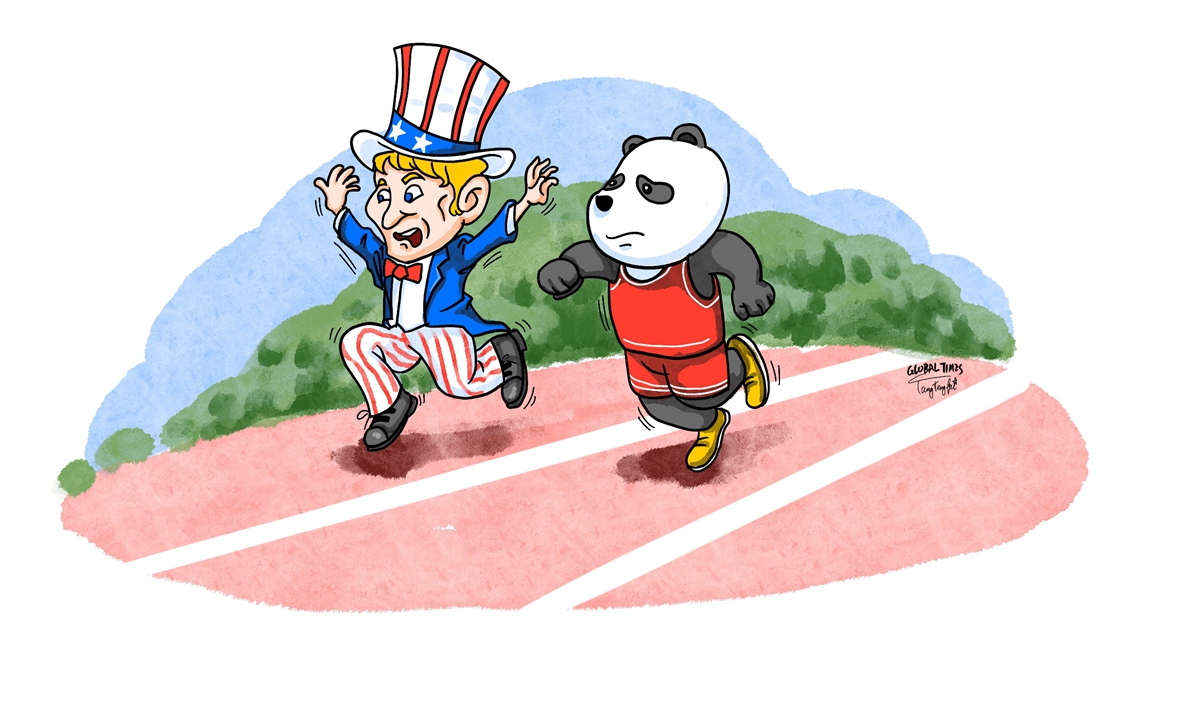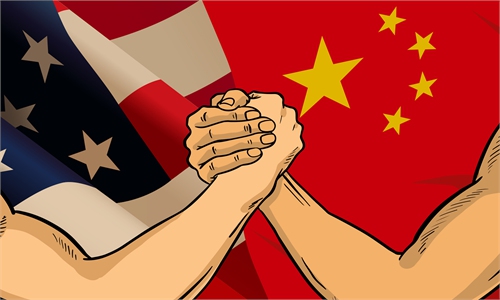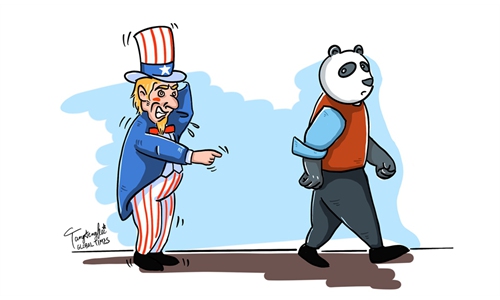COMMENTS / EXPERT ASSESSMENT
Biden strategic guidance sets tone of ‘cooperative competition’

Illustration: Tang Tengfei/GT
The White House Wednesday published US President Joe Biden's first strategic guidance - Interim National Security Strategic Guidance. The document expands on Biden's vision for how America will engage with the world, including US' stance in unfolding strategic competition with China.
In the guidance that will align the actions of US government's departments and agencies, Biden's approach toward relations with China remain consistent with his first foreign policy speech last month. While stressing the need to "prevail in strategic competition with China," the document noted that competition should not preclude "working with China."
From the Trump administration to Biden administration, to seek upper hand in competition against China is a standing policy direction of the US. While China has been prepared for inevitable healthy competition, the US should understand it is the US' responsibility to prevent the competition from falling into a vicious one.
The Biden administration should learn the lesson from the disastrous outcome of the previous government's extreme anti-China rhetoric and policy approach. The backfiring of the reckless trade war still continues taking toll on US farmers, businesses and consumers.
In unfolding economic competition with China in the coming years, the Biden administration should think carefully before making decisions on what bottom lines should the country secured even only for the sake of its own interests.
Judging from the signals Biden issued in his foreign policy speech and strategic guidance, the Washington is highly likely to set the mainstream of the China-US relationship as cooperative competition during his tenure.
As what the US Secretary of State Antony Blinken said on his first full day in the job in late January, he favored cooperation with China on climate change and other issues of shared concern, Reuters reported.
Cooperation between China and the US in economic areas and fight against coronavirus is of great positive significance to the world. The global economy has not yet recovered from the impact of the public health crisis. If China and the US, as the world's top two economies, can work together to coordinate macroeconomic policies, it will help stabilize global market outlooks and better allocate resources to accelerate post-pandemic recovery. In addition, China-US cooperation can also counter further damage of the protectionism on the global economy.
However, for high-tech sectors, which are expected to become the focus of China-US competition, China must be fully prepared to balance the arbitrary suppression by the US. In a report published on Monday, the National Security Commission on Artificial Intelligence (NSCAI) warned the US government is "not prepared to defend or compete" with China on AI. Suggesting a $40 billion plan to Washington, NSCAI said the plan can help US gain leading edge against China in the AI area.
It is predictable that the US will continue to build alliances to form a tech blockade against China. Based on this assessment, China should strengthen independent technological innovation to counter cut-throat problems. China should speed up its efforts to form a scientific and technological force that balances with the US.
Meanwhile, China should promote research and development cooperation with international scientific circles. The US's attempt to build an anti-China circle is against the development trend of international tech cooperation.
The article is compiled based on an interview with Song Guoyou, director of the Center for Economic Diplomacy, Fudan University. bizopinion@globaltimes.com.cn


